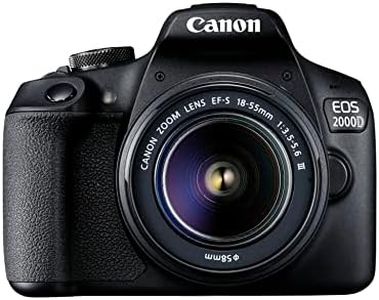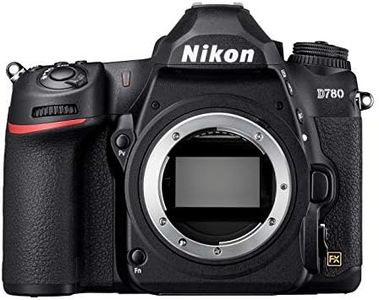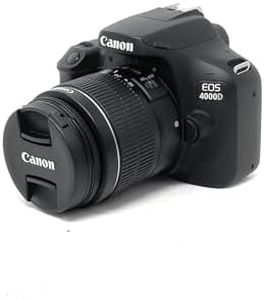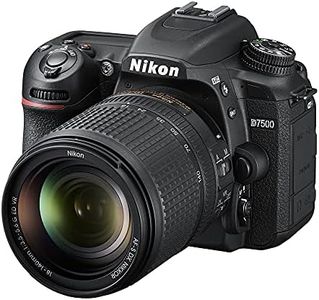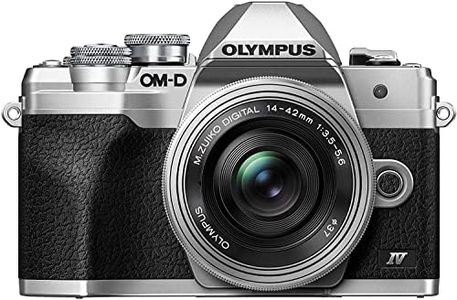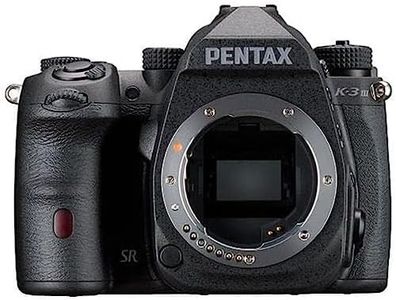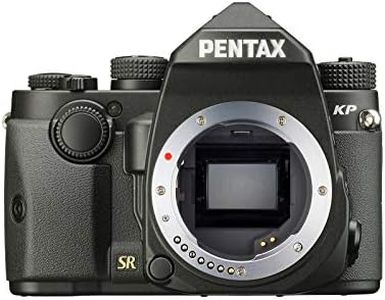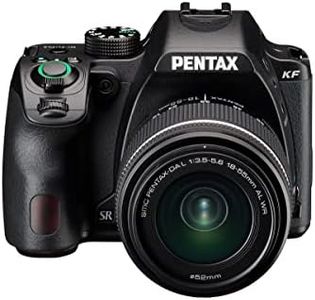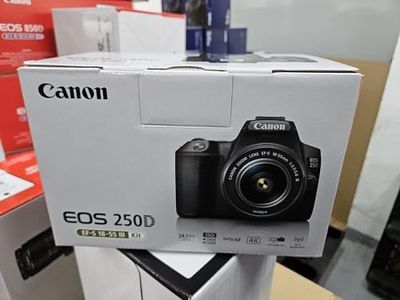10 Best Dslr Cameras For Beginners
From leading brands and best sellers available on the web.45,000 reviews analyzed
Our Top Picks
Winner
Canon EOS 2000D + EF-S 18-55mm III Lens - Easy-to-use DSLR Camera with a Versatile Lens, Ideal for Portraits and Landscapes
The Canon EOS 2000D paired with the EF-S 18-55mm III Lens offers a great entry point for beginners venturing into DSLR photography. One of its standout features is the 24.1 Megapixel sensor, which allows for capturing detailed images even in low-light conditions. The camera's ability to create stunning background blur enhances portrait and landscape photography, making it a versatile choice for novices. The included lens is ideal for general use, providing a standard zoom range that covers most everyday photography needs.
Wi-Fi and NFC connectivity is a big plus, as it simplifies sharing photos on social media or remote shooting with the Canon Camera Connect app. This feature is particularly appealing to users who wish to quickly upload their shots or explore creative angles. The camera also offers a guided experience with its Creative Auto mode and filters, which can aid beginners in understanding and experimenting with different photographic styles.
However, the camera's 9-point autofocus system might feel limited compared to more advanced models, potentially affecting the precision and speed of capturing moving subjects. The continuous shooting speed of 3 frames per second is sufficient for basic use but falls short of capturing fast action shots seamlessly. Additionally, the lack of built-in image stabilization means that steady hands or a tripod may be required to achieve sharp images, especially in challenging conditions.
On the practical side, the camera is lightweight at 475 grams, making it easy to carry around, and its compact dimensions are convenient for travel. Though not water-resistant, it remains a strong candidate for everyday outdoor photography. The Canon EOS 2000D is a compelling choice for beginners due to its ease of use and solid feature set, albeit with some limitations in terms of autofocus and stabilization.
Nikon D780 Body
The Nikon D780 is a strong choice for beginners stepping into DSLR photography who want a camera that can grow with their skills. It features a 24.5-megapixel full-frame sensor that captures detailed, high-quality images. Its ISO range is broad, allowing you to shoot in various lighting conditions, from bright daylight to dim indoor scenes. Autofocus is a highlight here, with 51 focus points and a sophisticated live view system that even includes eye-detection, helping you keep subjects sharp easily — which is great for learning and improving photography techniques.
The camera is compatible with Nikon F-mount lenses, offering flexibility to expand your lens collection over time. Manual controls are fully accessible, allowing beginners to experiment with settings like shutter speed and aperture at their own pace. Physically, the D780 weighs around 840 grams, making it a bit heavier compared to some entry-level models but still manageable for most users. Burst shooting up to 12 frames per second is impressive, helping capture fast action moments. Wireless connectivity and quick image transfer add convenience for sharing photos.
On the downside, the camera lacks built-in image stabilization, which means relying on stabilized lenses or steady hands, and it isn’t water-resistant, so extra care is needed in demanding conditions. Although it’s not the cheapest beginner DSLR, the D780 offers many advanced features wrapped in a user-friendly package, making it a solid investment for those serious about learning photography.
Canon EOS 4000D DSLR Camera and EF-S 18-55 mm f/3.5-5.6 III Lens - Black
The Canon EOS 4000D DSLR Camera, paired with an EF-S 18-55 mm f/3.5-5.6 III lens, is designed to be beginner-friendly. With an 18 MP CMOS sensor, it can deliver good image quality, though not as high resolution as some newer models. The ISO range of 100-12800, expandable to 6400 and 12800, allows for decent low-light performance, although it may struggle in extremely dark conditions. The 9-point autofocus system is basic but adequate for beginners learning to frame and capture their shots.
The inclusion of image stabilization in the lens is a plus, helping to reduce blurriness in photos and videos. Manual controls and easy-to-follow guidance make it a good learning tool for budding photographers. It's compatible with Canon EF and EF-S lenses, providing flexibility for those looking to expand their lens collection in the future. The camera is relatively lightweight at 0.63 kg, making it comfortable to carry around for extended periods.
However, it lacks weather resistance, which could be a drawback for outdoor photography in varying conditions. Connectivity options are straightforward, allowing for easy sharing and transfer of images. Given its price and features, the Canon EOS 4000D is a solid choice for beginners looking to explore DSLR photography without overwhelming complexity.
